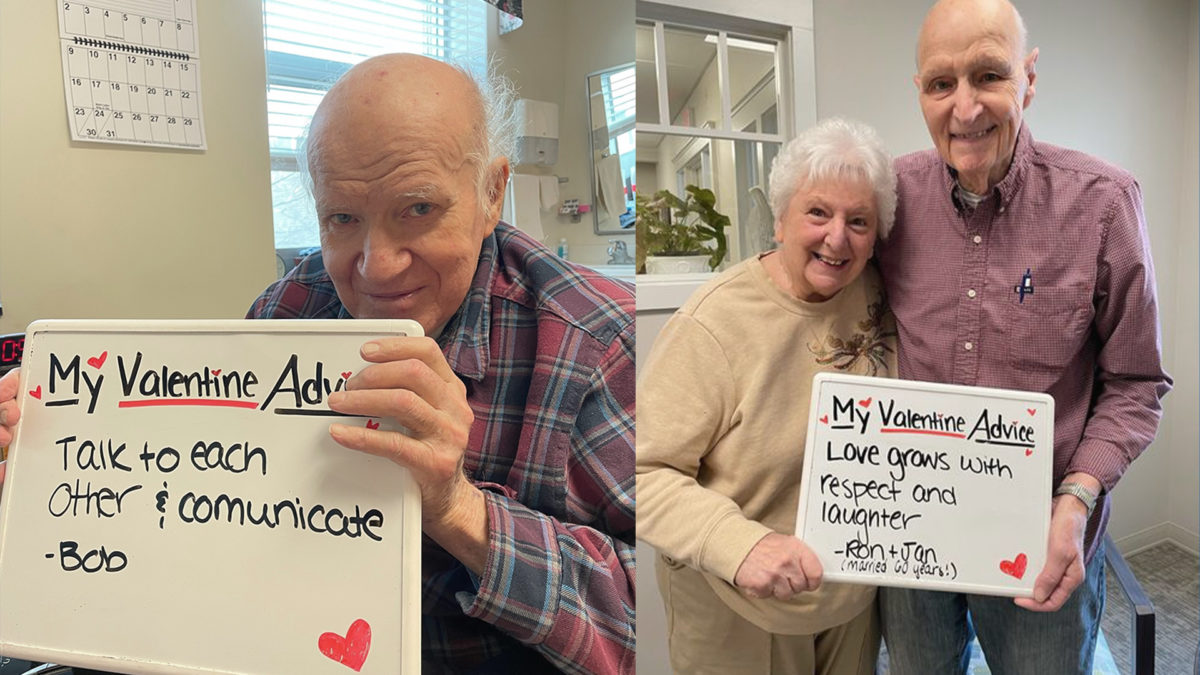It has been the fifth time that Millie’s mom, Heidi, forgot that something was cooking on the stove. As an aging person, Heidi unavoidably has experienced memory loss. Heidi often sits at the window, gazing into the distance without moving. She is in a world of her own. One day, she turned to Millie and said, “Orchids were planted here instead of roses five years ago.” But when Millie asked whether she still remembered the gardener, Gage, also planting hydrangea, Heidi looked at Millie with great confusion.
“Who is Gage?”
It’s quite normal for seniors to experience “senior moments.” As we age, we may not have as strong memories as we used to be and often experience memory loss. However, memory loss is also a common symptom of dementia, which is not a part of normal aging.
Indeed, early-onset dementia often goes undiagnosed because the initial symptoms are too similar to those of senior moments. As a result, when our loved ones experience memory loss or memory changes, we worry that they are experiencing dementia.
Millie feels the same way. As a precaution, Millie took Heidi for a medical checkup. Thank goodness Heidi only showed signs of normal aging. Millie shared this experience with us, and we decided that it might be helpful to discuss the different levels of memory loss, so here we go.
If your loved one is experiencing difficulties with memory…
-
Does their memory loss noticeably disrupt their daily life?
-
Are they experiencing difficulty speaking and disorientation?
-
Does their memory loss affect their ability to complete tasks as they usually would?
-
Are they experiencing difficulty learning and remembering new things?
Keep your answer in mind and continue reading…
Age-Associated Memory Impairment
If your loved one is experiencing difficulties with memory, but they can still complete daily tasks and don’t find it difficult to learn new things and remember recent events. Your loved one most likely has what’s known as age-associated memory impairment.
In general, age-associated memory impairment is a normal part of aging. When you find your loved ones experiencing age-associated memory impairment, it doesn’t mean they have dementia. Yes, they may occasionally have trouble remembering things, such as where they put their keys, the names of their former classmates, the name of the gardener from five years ago, but these are NOT signs of dementia! True, they may not remember things as quickly as they used to, but don’t worry about it most of the time.
Mild Cognitive Impairment (MCI)
Pay attention when your loved one starts to experience some cognitive decline, such as difficulty speaking and disorientation! They may have mild cognitive impairment. MCI is in between age-associated memory impairment and dementia. Indeed, mild cognitive impairment affects memory and other cognitive abilities, but the symptoms are not as severe as dementia. Seniors with MCI can still carry on their daily functions and routines without interruption. More specifically, seniors who experience MCI may experience memory problems, impaired thinking skills, language difficulties, disorientation in time and space, poor judgment, and impaired depth perception.
What’s even more concerning is that MCI may increase your risk of developing different types of dementia, such as Alzheimer’s disease. However, not everyone diagnosed with MCI goes on to develop dementia. Some seniors remain stable, and some may even improve cognitive abilities over time. Therefore, when you find your loved one is in a mild cognitive impaired condition, don’t be too pessimistic. Actively participate in cognitive therapy and stay positive!
Dementia
For seniors with dementia, their memory loss is probably severe, depending on their stage. Besides being unable to retrieve their memory, memory loss also strongly affects their daily life and ability to stick to their normal routine. Seniors with dementia may find it difficult to complete the tasks they are used to. Moreover, learning new things also turns out to be hard for them.
As we can see, just as aging is a continuous process, the differences between each stage are very subtle. Therefore, as the children and grandchildren of our dear elderly, we need to notice the signs and take them for regular checkups.
But how does our brain change? The GEMS®: Brain Change Model, developed by Teepa Snow and based on the Allen Cognitive Scale, provides a fantastic visual demonstration of how our skills and abilities shift at any given moment.

In the Sapphire stage, seniors have optimal cognition and a healthy brain. It may be hard for seniors to find words that can describe what they are thinking at this stage. They may often talk to themselves because they try to give themselves cues and prompts. They can learn new things, change habits and make decisions, but give them more time!
In the Diamond stage, seniors have clear and sharp cognition. When seniors feel happy and supported, they are easygoing. However, when they feel distressed, they can be cut and rigid. Sometimes they may see help as a threat and cause conflict among their family, friends, or care team. At this moment, it’s hard to tell if seniors are choosing their behaviour or truly have limits in their ability.
In the Emerald stage, seniors tend to be focused on their wants or needs but may not be aware of their changing abilities. They probably won’t remember the details of the time with you and other family members, but they will still remember how your body language and tone of voice made them feel. Since they are experiencing memory loss, their brain starts to make up information to fill in the blanks. Try not to correct them or argue, as this may turn them off or make them suspicious of you.
In the Amber stage, seniors may be caught in the moment. They start to do simple tasks repeatedly and repeatedly move and touch, smell, and taste or take and tear items apart. At this time, seniors’ mouths, hands, feet, and genitalia are highly sensitive, so they are most likely to react to you based on how you look, sound, move, smell, and respond to them. Be careful, notice their reaction, and stop if they are resisting.
In the Ruby stage, their obvious losses on cognition make their remaining abilities harder to notice. Seniors in this stage can only move and do really simple things, and sometimes, they may not be aware of their needs. Therefore, we need to anticipate, identify, and respond to their needs. Due to losses in visual skills, chewing abilities, balance, and coordination.
In the Pearl stage, seniors are near the end of their life. At this stage, focus on spending more moments of connection to create a sense of wholeness and value. Seniors will enjoy these beautiful moments with you and with all family members. Though they can still respond to familiar voices and gentle, rhythmic movements, their brains are losing the ability to control and heal their body. “The greatest gift at this time in my life is to let me know that it is okay to go.”
Comparing Normal Aging & Dementia
Here are some of the signs of normal aging memory loss compared to the signs of dementia to have a clearer understanding of the different conditions of memory loss in older adults. However, we at CareStory are not doctors and by no means experts in dementia. All that to say, these are just references. If you are concerned, please visit your doctor for further discussion. However, we are going to hire personal support workers! If you’re interested and would love to refer your qualified friends to join us, click here.
signs of Memory Loss Due to Normal Aging
-
Unable to recall the content of conversations or details of events a long time ago.
-
Fails to recall the name of an acquaintance.
-
Forgets and is slow to recall dates, things, and events occasionally.
-
Words are often on the “tip of the tongue” in conversations.
-
Executive functions remain normal but have longer cognitive processing and reaction time.
-
They are worried about their memory, but families and friends are not.
Signs of Dementia
-
Forgets recent event details or conversational content but also repeats the same conversations.
-
Unable to recognize or know the names of family members.
-
Forgets things, events, and appointments more frequently.
-
Has trouble coming up with desired words in conversations and has frequent pauses and substitutions when finding words.
-
Unable to perform complex daily tasks
-
Friends and relatives are worried about their memory, but they are unaware of these issues.
Please remember that these are only the most common symptoms. Not all symptoms are listed here. Please visit professionals and ask for further help.
How to Support Seniors Experiencing Cognitive Impairment
Exercise!
According to the American Academy of Neurology’s practice guidelines, aerobic exercise is one of the best methods to maintain brain health. Besides, social and mental support is also salient. Just take 20 minutes out of your day to exercise! More recommended exercises are here.
Senior Care Services!
Find more professional assistance once you find out that your loved one is experiencing cognitive impairment! Ask yourself what kind of services are best for your loved one. Should you be looking at Long-term Care Homes or Home Care services? All the information is in our “All You Need To Know About Long-Term Care” and “Should I Send My Parents To A Nursing Home” blog posts.
We Should Provide More Information for Care Staff!
Caring for the elderly is never an easy task. Because of this, we need to give more attention to them and provide them with the best care. Often, this is where we need more professional help. Superior quality care builds on close connection and communication with older adults. Caregivers also need to anticipate seniors’ needs. Therefore it’s consequential to know seniors’ habits, interests, and important life moments.
“Having extra care information handy has connected me more to the residents. Never felt closer to them.”
“With the whole COVID-19 situation happening, it feels great to be involved more and know my dad is doing well.”
We’ve interviewed hundreds of families and caregivers. We know your concern for the elderly, your worries about the care your loved one receives, and your willingness to share more information about your loved one to their care staff.
We have prepared our solution for you – CareStory. The CareStory app allows family members to share background information about their loved ones. Staff, caregivers, and nurses can share each seniors’ unique care preferences and provide individualized holistic person-centred care as if they were part of the family. Here’s a short video for you to know more about our app!
Vedio
References:
https://docs.google.com/document/d/1d1woC_yvmnYA2KkmWjruRlnjU8_UvjJN/edit
https://www.cdc.gov/aging/publications/features/dementia-not-normal-aging.html
https://alzheimer.ca/en/about-dementia/do-i-have-dementia/differences-between-normal-aging-dementia
https://teepasnow.com/about/about-teepa-snow/the-gems-brain-change-model/
http://www.annalsofcommunityhealth.in/ojs/index.php/AoCH/pages/view/prege
















